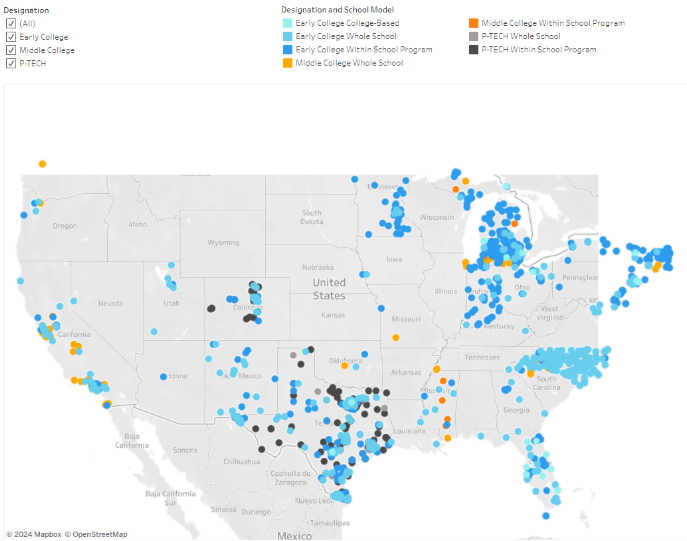Want to know how to graduate from high school early? Or are you a parent wondering if early high school graduation is the right choice for your child?
You are at the right blog post, as I will help you understand everything you need to know, from the benefits and challenges to the specific strategies that can make early graduation a reality.
You’ll learn how to navigate the complexities of early graduation, understand the impact on college admissions, and weigh the social and academic implications of graduating high school early.
So, without delay, let us start building a clear road map for graduating high school early.
What Does It Mean To Graduate High School Early?
Graduating high school early means completing all required credits and exams before the typical four-year timeline. Instead of graduating at 18, some students finish at 16 or 17.
While exact numbers vary, early graduation is becoming an option more students are exploring across the United States.
Many early college high school specialized programs exist in the USA (as shown in the image below) to cater to this increasing demand.

Early College High Schools are specialized programs that allow students to earn a high school diploma and up to two years of college credit simultaneously. These programs began in 2002 and are designed to serve traditionally underrepresented students in higher education.
Why Consider Graduating High School Early?
Graduating early is a task that requires one to be focused and hard-working. But why would one make this effort to graduate early, you ask? Let me tell you the benefits and reasons for why some students prefer to graduate early:
Academic Advantages
Research by the American Institutes for Research (AIR) has shown significant positive effects of early college on both high school and college outcomes.
Early College students were more likely to graduate from high school, enroll in college, and earn a college degree than similar students not enrolled in Early Colleges.
A few other advantages (whether you go to early college programs or not) of graduating high school early are:
- Start college classes sooner.
- Sense of accomplishment and confidence
- Take more advanced courses.
- Explore dual enrollment programs.
Career And College Opportunities
Graduating early can jump-start your career or college plans. You might:
- Enter the workforce sooner.
- Have extra time for internships.
- Get a head start on college applications.
However, it’s important to consider that some colleges prefer students who complete a full four-year high school program.
Personal Growth And Challenges
Early graduation can contribute to the personal growth of students. Here are a few things that one gains by preparing to graduate school early:
- Time management skills get improved.
- Boost in confidence.
- Teaching goal-setting and achievement.
Basic Requirements For Early High School Graduation
If you are serious about graduating high school early, here are the three most important requirements.
1. State And District Policies
Requirements for early graduation vary by location. For example, if you’re looking into how to graduate high school early in California, you’ll need to:
- Complete all required courses as outlined by the California Department of Education.
- Meet any additional school district-specific requirements.
To find the latest requirements for your school or your state and district, always check with your school counselor for the most up-to-date and specific local requirements.
2. Credit Requirements
You’ll need to earn all required credits faster than your peers to graduate early. This usually means:
- Taking extra classes each semester
- Attending summer school
- Completing online courses
The exact number of credits required varies by state and district. For instance, if you’re planning to graduate high school early as a sophomore, you might need to take more classes per semester than usual.
3. Standardized Testing
Most states require specific tests for graduation. According to the Education Commission of the States:
- 11 states required exit exams
- 26 states incorporated end-of-course exams into graduation requirements.
- Most states require specific tests for graduation. These might include State exit exams, SAT or ACT scores (in some states), or End-of-course assessments.
Note: You must check with your state’s education department or school counselor for specific testing requirements and the standard course required.
8 Strategies To Graduate High School Early
Having a strategy, regardless of your goal or aim, is always great. In the case of graduating early, here are my 8 strategies that you can use:
1. Accelerated Course Load
Take more classes each semester than the standard classes. Instead of the usual 6, try taking 7-8 classes per semester. However, refrain from skipping lunch breaks. You must eat for your body to stay healthy.
Taking more classes each semester is a direct way to accumulate credits faster. Here’s how to make it work:
- Aim for 7-8 classes per semester instead of the standard 6
- Prioritize core requirements first, then add electives
- Consider zero-hour classes (classes before the regular school day starts)
- Use study halls or free periods for additional classes
- Balance challenging courses with easier ones to manage the workload
- Maintain a strict schedule to stay on top of assignments
- Don’t sacrifice sleep or nutrition – your health is crucial for success
2. Summer School And Online Classes
Utilize breaks to earn additional credits. You can also enroll in online courses on Coursera to earn extra credits during the school year. The online courses offer flexibility, but you need self-discipline to finish a course.
Utilizing breaks and online resources can significantly speed up your progress. Here is what you need to do:
- Enroll in summer school for core subjects or required credits
- Look for free online courses through platforms like edX or Coursera
- Check if your school district offers credit for approved online courses
- Consider virtual high school programs for additional classes
- Use online resources to supplement in-person learning
- Set a strict schedule for online courses to avoid procrastination
- Join online study groups to stay motivated and accountable
3. Dual Enrollment Programs
You can earn high school and college credits simultaneously by participating in classes at a local community college. This will help you get a taste of college-level coursework as well. The credits you earn during this time often transfer to colleges, saving time and money later.
Dual enrollment programs offer a valuable head start on college. Check these strategies to enroll yourself:
- Research local community colleges that offer dual enrollment
- Discuss options with your high school counselor and the college admissions office.
- Understand how credits will transfer to potential future colleges
- Be prepared for a more independent learning environment.
- Develop strong time management skills to balance high school and college work.
- Take advantage of college resources like libraries and tutoring centers.
- Use this experience to explore potential college majors.
4. Credit By Examination
Some states allow students to test out of specific courses by taking a comprehensive exam to prove mastery. This is an excellent way to showcase progress and test yourself whether you are ready for college. Use these tips to test:
- Check which exams your state or district accepts (e.g., CLEP, DSST)
- Understand which courses can be skipped through the examination.
- Create a study plan for each exam you plan to take
- Use practice tests to assess your readiness.
- Consider the cost of exams versus the time saved.
- Don’t sacrifice the depth of learning just to skip courses.
- Ensure colleges you’re interested in accept credit-by-exam
5. Early College High School Programs
Find out with your counselor whether they know of specialized programs for early graduation and college credit accumulation. Such programs exist in a partnership between high schools and colleges at no or low cost.
These programs are great for high schoolers as they offer a more supportive transition to college-level work. So here is how to find early college high school programs and benefit from it:
- Research if your area has any early college high schools
- Understand the application process and deadlines.
- Prepare for a rigorous academic environment.
- Take advantage of the support services offered by these programs.
- Use this opportunity to develop college-level study skills.
- Build relationships with college professors for future recommendations.
- Consider how this might impact your choice of colleges later.
6. Meet With Your Guidance Counselor
Schedule regular meetings to discuss your early graduation plan with your school counselor. Ask them for information on your school’s specific policies and requirements. You can also seek advice on which strategy or combination of strategies might work best for you.
School counselors are the best place to ask about potential challenges and how to overcome them. Use their expertise to ensure you’re meeting all graduation requirements. Here is how to keep regular communication with your counselor:
- Schedule monthly check-ins to track progress.
- Bring a list of questions to each meeting.
- Ask about any new opportunities or programs.
- Discuss how your plan might impact college applications.
- Seek help in balancing academic and extracurricular activities.
- Use your counselor’s expertise to navigate any challenges.
- Keep them informed of any changes in your goals or circumstances
7. Create A Personalized Academic Plan
Work with your counselor to map out all required courses and plan which semesters you’ll take extra classes or exams. Include any summer school or online courses in your timeline.
Remember to factor in standardized testing dates and college application deadlines, build in some flexibility for unexpected challenges, and review and adjust your plan regularly. Draft a well-thought-out plan to early graduation by:
- Start by listing all graduation requirements.
- Create a semester-by-semester schedule of classes.
- Include standardized tests (SAT, ACT, AP exams) in your timeline.
- Plan for college application deadlines if applicable.
- Build in buffer time for unexpected challenges.
- Review and adjust your plan at the end of each semester.
- Include summer activities that support your academic goals.
8. Communicate With Parents And Teachers
It is important to discuss your early graduation goals with your parents or guardians. This way, they can also help you budget how much and when fees need to be paid. Inform your teachers about your accelerated plan and ask them for extra resources or guidance if necessary.
This is how I kept my support system informed and involved back in school. You can do the same:
- Have regular family meetings to discuss your progress.
- Explain to your parents the financial implications of your plan.
- Ask teachers for additional resources or advanced work.
- Inform teachers of your goals so they can provide appropriate support.
- Discuss potential letters of recommendation with teachers early on.
- Seek advice from parents and teachers on managing stress.
- Keep them updated on your achievements and challenges.
Potential Challenges Of Graduating High School Early
Here are a few challenges that children who graduate early face:
1. Social And Emotional Considerations: Missing Out On Traditional High School Experiences
Graduating early can mean missing out on significant social and emotional aspects of the traditional high school experience. Senior year, in particular, is often filled with milestone events such as prom, senior trips, and graduation ceremonies.
These experiences contribute to personal growth, social bonding, and forming lifelong memories. Additionally, the last year of high school is often when students take on leadership roles in clubs, sports teams, or student government, developing social and leadership skills.
2. Academic Pressure: Managing A Heavier Course Load
Students must take on a significantly heavier course load to graduate early. This can lead to increased academic pressure and stress.
Instead of six or seven classes per semester, early graduates might juggle eight or nine classes, plus potentially summer school or online courses. This intensified schedule can leave little time for extracurricular activities, hobbies, or relaxation, potentially leading to burnout.
3. College Admissions Impact: Some Colleges Prefer Four-year High School Graduates
Early graduates may be perceived as having less developed social skills or extracurricular involvement compared to their peers who completed the full high school experience. Some colleges and universities prefer applicants who have completed a full four-year high school program.
These institutions value the maturity and well-roundedness that often comes with completing all four high school years.
Alternatives To Early High School Graduation
These alternatives offer ways for students to challenge themselves academically and earn college credits without the need to graduate high school early.
AP and IB programs offer excellent alternatives for students seeking academic challenges without graduating early. These rigorous curricula provide college-level coursework within the high school setting, allowing students to earn potential college credits while maintaining their traditional high school experience.
Let’s explore these two globally recognized programs:
1. Advanced Placement (AP)
Advanced Placement (AP) courses offer a rigorous academic challenge for high school students looking to push their boundaries without graduating early. Here are a few important details about it:
- Developed by the College Board
- Offers college-level courses in various subjects
- Students can earn college credits by scoring well on AP exams
- According to the College Board, in 2023, over 1.2 million students took at least one AP exam
- Many colleges grant credit or advanced placement for successful AP scores
2. International Baccalaureate (IB)
The International Baccalaureate (IB) program presents another compelling option for students seeking an advanced and globally oriented education within the high school framework. This comprehensive curriculum is designed for 11th and 12th graders.
- A comprehensive two-year curriculum for 11th and 12th graders
- Emphasizes critical thinking, intercultural understanding, and exposure to a variety of viewpoints
- Offers both individual courses and a full diploma program
- The IB Organization reports that as of 2021, over 5,000 schools worldwide offer IB programs
- Widely recognized by universities around the world
Related Reads:
Conclusion: Graduating High School Early Is Easy With Our Strategies
Graduating high school early can be rewarding for motivated students, as it helps them succeed personally and professionally. But it means you will lose out on the high school experience.
Make your decisions by weighing these benefits and challenges. However, If you are determined to graduate high school early, there are 8 strategies I have mentioned above. Use all of them to maximize your success.
Early graduation isn’t the only way to challenge yourself academically!
Alternatives such as Advanced Placement (AP) courses, International Baccalaureate (IB) programs, dual enrollment, and early college high schools provide academic experiences that allow you to complete an entire high school program.
And remember, there’s no one-size-fits-all approach to education. Whether you choose to graduate early or pursue other advanced academic options, Your high school journey is unique to you.
Make the most of it by choosing the path that aligns with your goals and aspirations.

